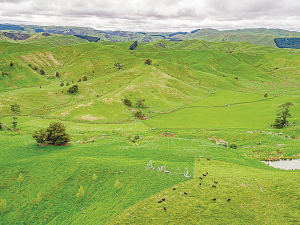Wired for Science: Understanding the feeding habits of mealybug
Fussy children might be frustrating, but fussy mealybugs could help protect the New Zealand wine industry from grapevine leafroll-associated virus 3.
 Agricultural exports could be hurt by the Government's decision to focus tourism visitor numbers on higher spending visitors.
Agricultural exports could be hurt by the Government's decision to focus tourism visitor numbers on higher spending visitors.
The Government's proposal to reduce future international tourism visitor numbers post-Covid to concentrate on higher spending visitors may solve one problem but create others.
Research by Lincoln University has highlighted that most of our agricultural products delivered fresh to market are transported on passenger planes, and tourists contribute to the cost.
It says the drop in tourism numbers could push up transport costs to the point where some businesses do not export at all and are put out of business.
Before Covid-19 hit, there were 550 international flights into and out of New Zealand each week, which carried 80% of New Zealand’s overall export airfreight in their belly-holds, and that it was worth $10.8 billion in December 2019. Only 20% of New Zealand’s airfreight was carried by dedicated air cargo-only freighters.
Before Covid-19, air freight was less than 1% of New Zealand’s total trade by volume, but about 16% in terms of dollar value.
The report says the decision may show a lack of understanding of the inter-relatedness of industries.
Bovonic says a return on investment study has found its automated mastitis detection technology, QuadSense, is delivering financial, labour, and animal-health benefits on New Zealand dairy farms worth an estimated $29,547 per season.
Pāmu has welcomed ten new apprentices into its 2026 intake, marking the second year of a scheme designed to equip the next generation of farmers with the skills, knowledge, and experience needed for a thriving career in agriculture.
One team with 43 head, including a contingent from Mid Canterbury, are reflecting on a stellar NZ DairyEvent.
Fonterra farmer shareholders have approved the mechanism for a $2/share capital return expected from the sale of its global consumer and associated businesses.
Trainees in the horticulture industry studying towards a certificate or diploma can now apply for Horticulture New Zealand's (HortNZ) 2026 Industry Training Scholarships programme.
OPINION: The first three Global Dairy Trade (GDT) auctions have been a morale booster for farmers.